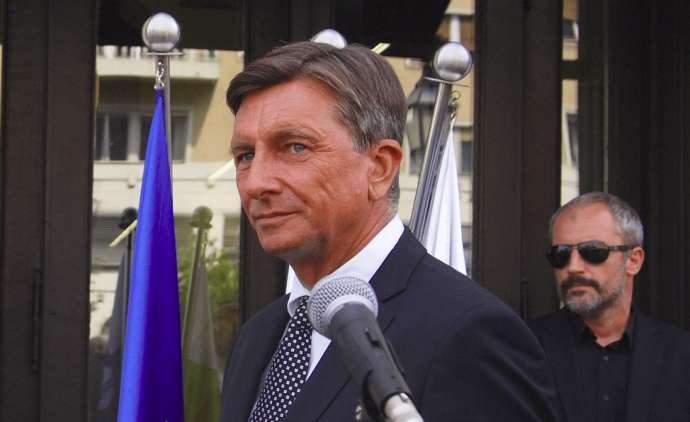STA, 12 September 2020 - President Borut Pahor has reiterated his concerns about a potential failure of parliament to implement an electoral reform as ordered by the Constitutional Court, saying that "from the moment of elections onwards, we will no longer be talking about coronavirus and other topics but only about whether we have a legal and legitimate leadership".
"It is true that this will not be the end of the world, but it could perhaps be the beginning of the end of formal democracy in Slovenia," Pahor told the STA, feeling Slovenia would regress to the period before the "political spring" that led to independence.
"Perhaps these are harsh words, but it is my duty to warn about his, not only as president but also as somebody who realises, in the light of the country's 30th anniversary, that we existentially depend on democracy."
The president has continued stressing that 21 December this year is the reform deadline set in a 2018 ruling by the Constitutional Court which said major discrepancies among population sizes in electoral districts no longer guaranteed the one person-one vote principle.
After parliament was three votes short earlier this year - the solution was rejected by the senior coalition Democrats (SDS) and junior coalition Pensioners' Party (DeSUS) - of scrapping the districts and introducing a preferential vote, parliament is expected to now focus on a redrawing of districts.
While the particular interests of parties threaten to complicate this redrawing, "things are also harder because we've been pushed into a corner, having only one option". He urged MPs to hurry up and, crucially, first come to an agreement on what kind of a discrepancies among municipalities would still be acceptable.
Pahor believes "there is currently hardly a bigger political challenge than adopting electoral legislation" and he does not find solace in statements claiming there will be no disaster if elections are held in line with the existing legislation.
"In the end, constitutional jurists acknowledge it is possible to think this way as a last resort, but this is the last resort and it constitutes an unreasonable risk."
Pahor, who is also puzzled by the passive attitude of the civil society to this issue, said that "if we do not have even the basic belief that we elected MPs via a legal system, we will completely erode people's trust in the political system".
Pahor expects that an appeal after such an election is almost inevitable, as he does not count on parties showing responsibility and accepting the result. "What is more, this is not just their problem. The election can be challenged by anybody, any voter," he stressed.
As for why it is taking so long, he acknowledged there had been some tactical play among the political parties, he however categorically rejected the possibility of somebody delaying things in order to intentionally push Slovenia into a non-democratic state.
"Were somebody to do that, they would incur the wrath of God. This would mean they are blind politically. Nobody will win if Slovenian politics fails to change electoral legislation," he said, while warning against an accumulation of issues amid the Covid-19 crisis.






